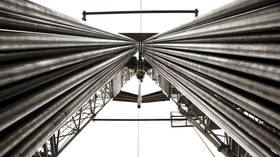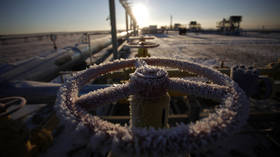Western states reveal their price cap for Russian oil

The Group of Seven nations, plus Australia and the EU, have agreed on a price cap for Russian seaborne crude oil at $60 per barrel, paving the way for official approval over the weekend.
Moscow has repeatedly stated that it will not sell oil to nations that take part in the scheme, warning that the cap will wreak havoc in the energy markets and push commodity prices even higher.
The measure will come into effect on December 5 or “very soon thereafter,” according to a joint statement issued by the G7 and Australia on Friday.
“The Price Cap Coalition may also consider further action to ensure the effectiveness of the price cap,” the statement read, without providing details on any further actions.
The G7 agreed to impose a limit on Russian seaborne crude in September. However, the EU was unable to reach an agreement on the issue for weeks, as Poland and the Baltic nations insisted that the proposed cap of $65-$70 was “too generous,” and should instead be set at $30. On the other hand, major shipping nations, including Greece, Malta, and Cyprus, wanted the ceiling to be set at around $70 per barrel.
The measure is aimed at banning Western businesses from insuring or financing vessels transporting Russian oil, unless the cargo is purchased at or below the artificial cap.
The Russian Embassy in the US has described the step as a redrawing of the basic principles of the free market.
“Strategists in Washington, hiding behind noble slogans of ensuring energy security for developing countries, maintain a wall of silence on the fact that current imbalances on the energy markets stem from their ill-conceived actions,” the embassy said in a statement on Saturday. “First of all – the introduction of sanctions against Russia and bans on energy imports from our country.”
Moscow has repeatedly stated that it will not sell oil to nations that take part in the scheme, warning that the cap will wreak havoc in the energy markets and push commodity prices even higher.
For more stories on economy & finance visit RT's business section














